News
Biden takes swipe at Sanders for accepting Joe Rogan’s support
Former VP reiterates trans issues ‘the civil rights issue of our time’
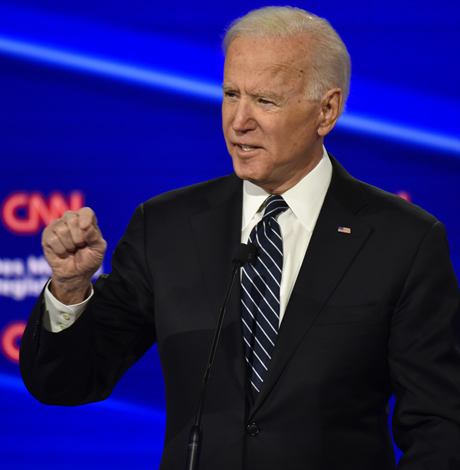
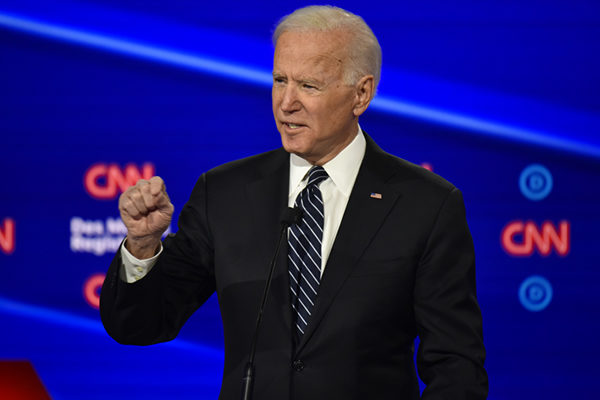
In an increasingly heated Democratic primary just weeks before the Iowa caucuses, Joseph Biden took a not-so-veiled swipe at Bernie Sanders on Saturday for accepting Joe Rogan’s support despite comments from the podcast host condemned as transphobic.
Taking to Twitter, Biden draws on his comments he made as vice president when he called transgender rights “the civil rights issue of our time,” which stands in contrast to the Sanders campaign accepting Rogan’s support.
Let’s be clear: Transgender equality is the civil rights issue of our time. There is no room for compromise when it comes to basic human rights.
— Joe Biden (Text Join to 30330) (@JoeBiden) January 25, 2020
An LGBTQ backlash against Sanders ensued after he promoted the Rogan endorsement on his Twitter account. Among those criticizing Sanders was Human Rights Campaign President Alphonso David, who said “it is disappointing that the Sanders campaign has accepted and promoted the endorsement.”
“The Sanders campaign must reconsider this endorsement and the decision to publicize the views of someone who has consistently attacked and dehumanized marginalized people,” David said.
Among other things, Rogan in the past has said a transgender woman athlete is actually a man, has used anti-gay epithets before “retiring” them and compared a black neighborhood to “Planet of the Apes” before admitting the comments were racist.
Amid the backlash, the Sanders campaign didn’t retract the endorsement or admonish Rogan for his comments, but instead defended the decision.
“Sharing a big tent requires including those who do not share every one of our beliefs, while always making clear that we will never compromise our values,” said Sanders national press secretary Briahna Joy Gray.
Also defending Sanders is Christine Hallquist, the first openly transgender gubernatorial nominee of a major party. Hallquist, who unsuccessfully ran in Vermont in 2018, told the Huffington Post “there is a contingent of privileged white males and we need their votes.” Additionally, Hallquist said she plans on endorsing Sanders.
Biden makes the veiled criticism of Sanders as the two are locked in national polls as the front-runners for the Democratic presidential nomination. The upcoming Iowa caucuses on Feb. 3 will be key to see who has momentum going forward.
None of other major presidential candidates (or for that matter President Trump) have been public in criticizing Sanders for accepting Rogan’s support, including gay presidential candidate Pete Buttigieg. The Blade has placed in with the campaigns of Buttigieg, Andrew Yang and Elizabeth Warren seeking comment. (UPDATE: A spokesperson for Yang campaign told the Blade it has no comment on the Rogan controversy.)
Both Biden and Sanders have long records of supporting LGBTQ rights in the lifelong public service, although there are some differences in the margins.
For example, Sanders in 1996 was one of a few House members to vote against the anti-gay Defense of Marriage Act, but Biden voted for it as a U.S. senator. Biden’s early support for marriage equality in 2012 got the ball rolling for victories at the ballot, but Sanders was late in embracing the issue.
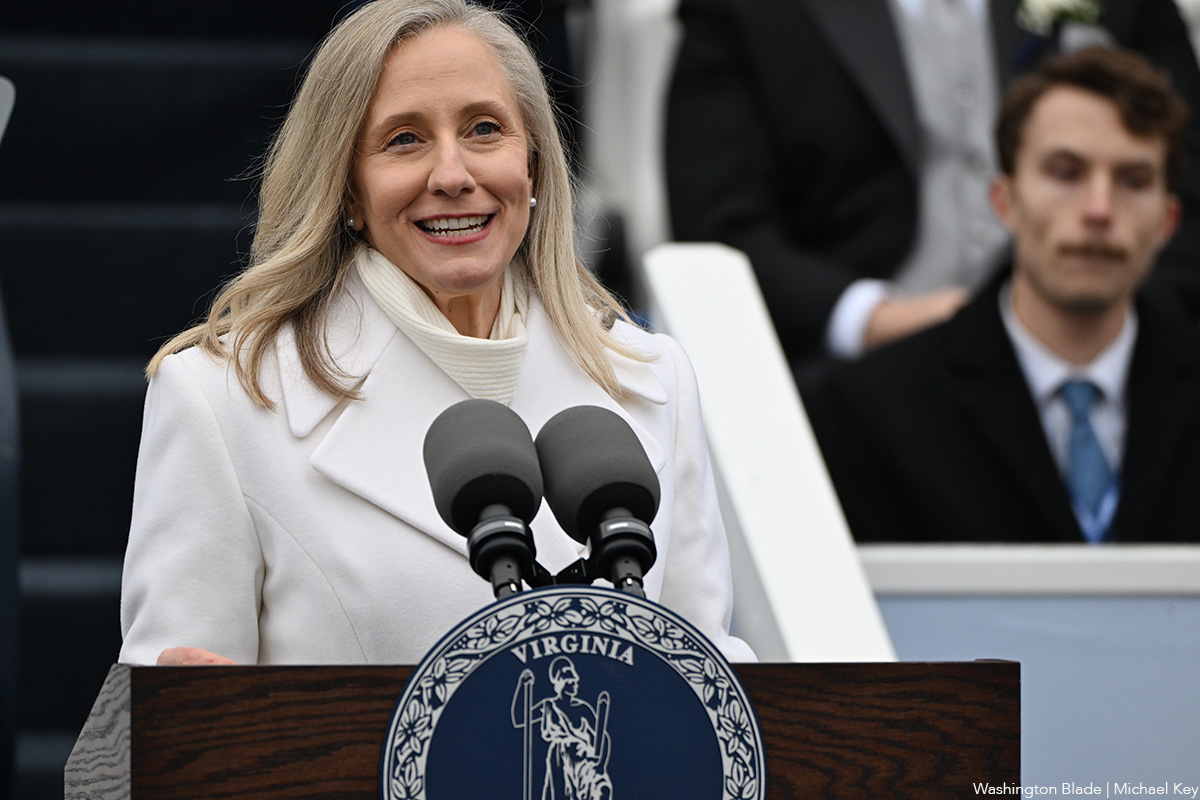
Abigail Spanberger was sworn in as the 75th governor of Virginia at a ceremony on the grounds of the Virginia State Capitol on Saturday. Thousands of spectators watched the swearing-in ceremony and parade, despite the rain and temperatures in the low 40s.
Spanberger, a member of the Democratic Party and an LGBTQ ally, became the first woman to be Virginia’s governor.
View on Threads
Newly-elected Attorney General Jay Jones, Lt. Gov. Ghazala Hashmi, and Spanberger were each administered the oath of office in the public ceremony.
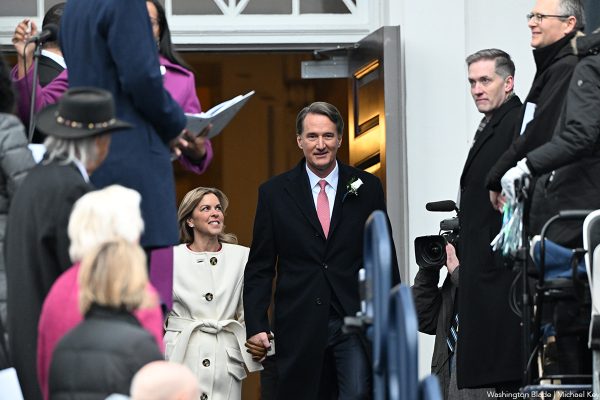
Republican former Gov. Glenn Youngkin left the ceremony shortly after the oath of office was administered to Spanberger and before the inaugural address.
In her speech, the new governor made an appeal to bipartisanship and looking past division in our current moment.
“To my friends in the General Assembly — on both sides of the aisle — I look forward to working with you,” said Spanberger. “I know what it means to represent your constituents, to work hard for your district, and to pursue policies you believe in. We will not agree on everything, but I speak from personal experience when I say that we do not have to see eye-to-eye on every issue in order to stand shoulder-to-shoulder on others.”
Spanberger acknowledged Virginians’ frustrations with federal layoffs and governmental policy.
“I know many of you are worried about the recklessness coming out of Washington. You are worried about policies that are hurting our communities — cutting healthcare access, imperiling rural hospitals, and driving up costs,” said Spanberger. “You are worried about Washington policies that are closing off markets, hurting innovation and private industry, and attacking those who have devoted their lives to public service.”
Spanberger alluded to the Trump-Vance administration, though never mentioned President Donald Trump’s name in her remarks.
Spanberger said, “you are worried about an administration that is gilding buildings while schools crumble, breaking the social safety net, and sowing fear across our communities, betraying the values of who we are as Americans, the very values we celebrate here on these steps.”
The new governor then spoke of her priorities in office, pledging to tackle housing affordability by working to “cut red tape” and increase housing supply. Spanberger also spoke of forestalling an impending healthcare crisis by protecting access and cracking down on “middlemen who are driving up drug prices.”
Spanberger spoke of investments in education at every level, standing up for workers (including the large number of federal workers in Virginia), and taking action on gun violence.
Virginia married couple Mary Townley and Carol Schall witnessed the inauguration ceremony from the stands set up on the grounds of the Capitol. Schall and Townley are one of the plaintiff couples in the case that challenged the Virginia constitutional ban on same-sex marriage.
Same-sex marriage became legal in Virginia in 2014.
“We are delighted with the inauguration of Abigail Spanberger as governor of Virginia,” Schall told the Washington Blade. “The celebration of her inauguration was full of the beautiful diversity that is Virginia. The Virginia Pride contingent was included as a part of what makes Virginia a great place to live.”
“Such an honor to attend such a wonderful event in Virginia history,” Townley told the Blade. “The weather before the Inauguration was cold and rainy, but I believe it represented the end of a dreary time and it ushered in the dry and sunny weather by the end of the inaugural parade. Madam Governor brought us to the light!”
The inaugural parade following the governor’s remarks included a contingent from Diversity Richmond and Virginia Pride. Marchers in the LGBTQ contingent carried a giant Progress Pride flag and were met with loud cheers from the gathered spectators.

Spanberger after her inauguration signed 10 executive orders. One of them bans discrimination against state employees based on sexual orientation, gender identity, and other factors.
“By virtue of the authority vested in me as Governor under Article V of the Constitution of
Virginia, I hereby declare that it is the firm and unwavering policy of the Commonwealth of Virginia to ensure equal opportunity in all facets of state government,” reads the executive order. “The foundational tenet of this executive order is premised upon a steadfast commitment to foster a culture of inclusion, diversity, and mutual respect for all Virginians.”
Virginia
VIDEO: LGBTQ groups march in Va. inaugural parade
Abigail Spanberger took office on Saturday
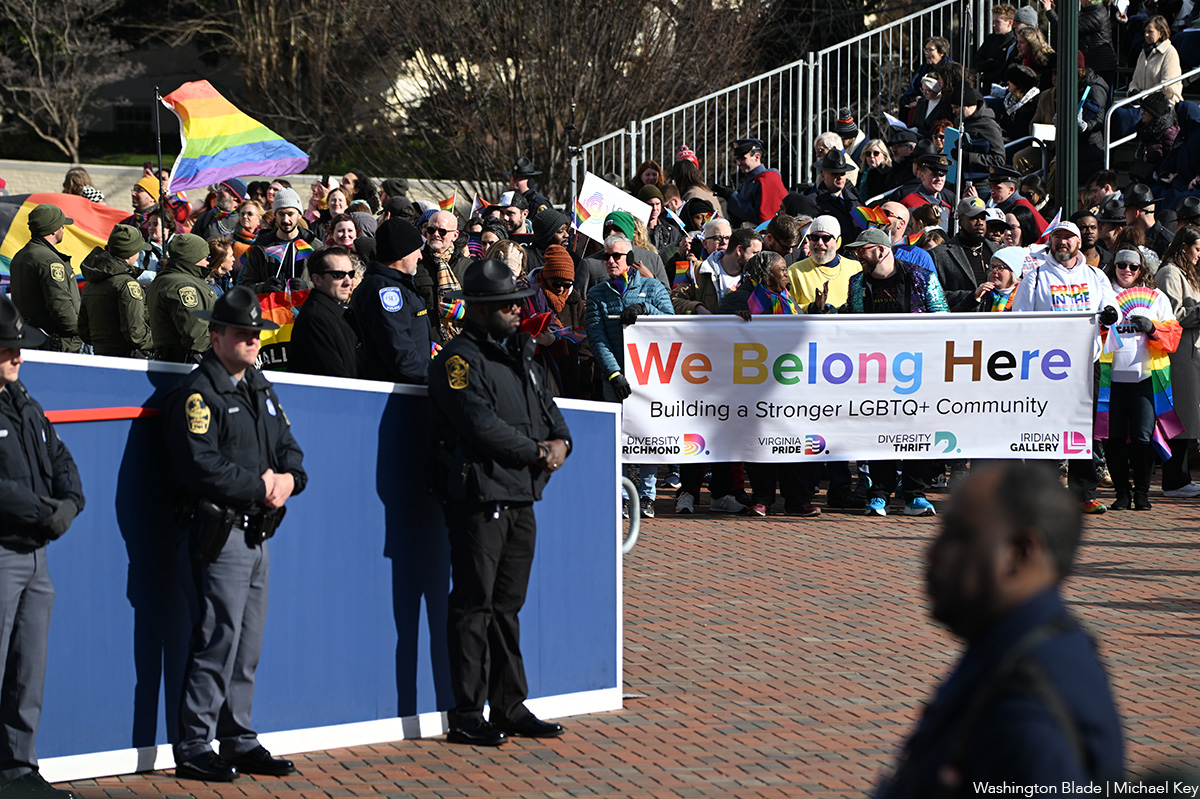
The inaugural ceremonies for Virginia Gov. Abigail Spanberger were held in Richmond, Va. on Saturday. Among the groups marching in the parade were Diversity Richmond and the Virginia Pride project of Diversity Richmond.
View on Threads

Virginia
Va. Senate approves referendum to repeal marriage amendment
Outgoing state Sen. Adam Ebbin introduced SJ3

The Virginia Senate on Friday by a 26-13 vote margin approved a resolution that seeks to repeal a state constitutional amendment that defines marriage as between a man and a woman.
Outgoing state Sen. Adam Ebbin (D-Alexandria) introduced SJ3. The Senate Privileges and Elections Committee on Wednesday approved it by a 10-4 vote margin.
Same-sex couples have been able to legally marry in Virginia since 2014. Outgoing Republican Gov. Glenn Youngkin in 2024 signed a bill that codified marriage equality in state law.
A resolution that seeks to repeal the Marshall-Newman Amendment passed in the General Assembly in 2021. The resolution passed again in 2025.
Two successive legislatures must approve the resolution before it can go to the ballot. Democrats in the Virginia House of Delegates have said the resolution’s passage is among their 2026 legislative priorities.
“It’s time for Virginia’s Constitution to reflect the law of the land and the values of today,” said Ebbin after Friday’s vote. “This amendment, if approved by voters, would affirm the dignity of all committed couples and protects marriage equality for future generations.”
-

 Iran5 days ago
Iran5 days agoGrenell: ‘Real hope’ for gay rights in Iran as result of nationwide protests
-

 Virginia5 days ago
Virginia5 days agoMark Levine loses race to succeed Adam Ebbin in ‘firehouse’ Democratic primary
-

 Congress5 days ago
Congress5 days agoVan Hollen speaks at ‘ICE Out for Good’ protest in D.C.
-

 LGBTQ Non-Profit Organizations5 days ago
LGBTQ Non-Profit Organizations5 days agoNational LGBTQ Task Force brings Creating Change conference back to D.C.














